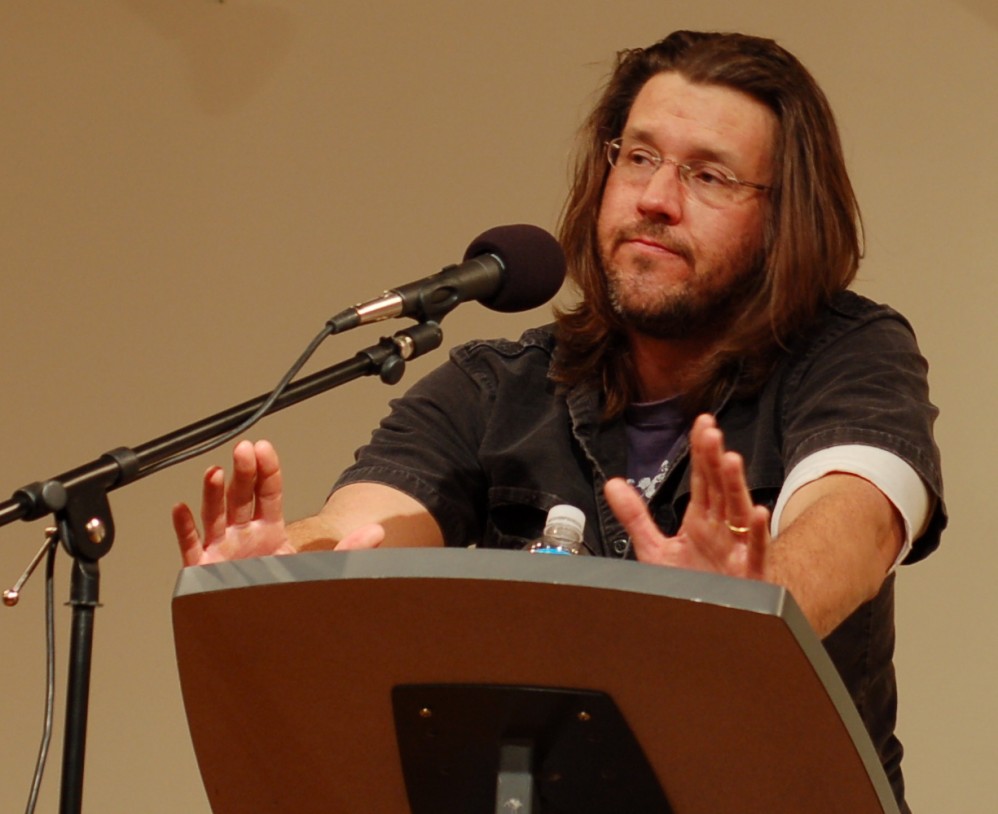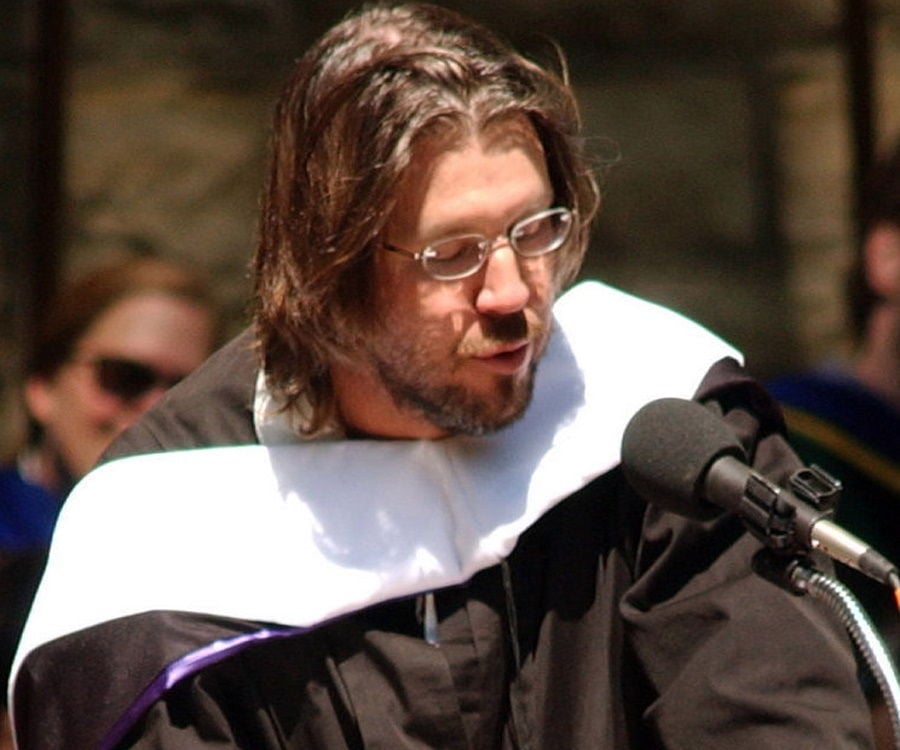Table Of Content

I have been addressed as “Mon” in three different nations. I have seen five hundred upscale Americans dance the Electric Slide. I have seen sunsets that looked computer-enhanced. In 1991, Wallace began teaching literature as an adjunct professor at Emerson College in Boston.
Early life and education
For the past decade, Literary Hub has brought you the best of the book world for free—no paywall. In return for a donation, you’ll get an ad-free reading experience, exclusive editors’ picks, book giveaways, and our coveted Joan Didion Lit Hub tote bag. Most importantly, you’ll keep independent book coverage alive and thriving on the internet. It wasn’t all premium Powerpoint access, though. Zenith caught fire twice, on August 18, 2009 in a welding accident, and on June 25, 2013 in an engine accident. She also ran aground (May 2, 2009), collided with another cruise ship (July 27, 2008), and had three Norovirus outbreaks (April 2004, March, 2005, April 2007).
Food For Any Taste. At Any Time.
Also published as the title essay in A Supposedly Fun Thing I’ll Never Do Again (Little, Brown). I was reading [Infinite Jest] when I was in rehab. It was me and my nurses, who'd come in and check on me, and then Angela [the protagonist of the song], miles away. I was surrounded by no one, and the book was just open on the front page, as most copies of Infinite Jest are ... Everyone our age has got a battered, quarter-read copy of Infinite Jest. The 2015 film The End of the Tour is based on conversations David Lipsky had with Wallace, transcribed in Although of Course You End Up Becoming Yourself (2010).

From Seaside to Cliffside
For a volatile star of film and literature who survived fires, viruses, and ’90s Hollywood flops, I can imagine worse fates. Better to be melted down and recycled than to fade away. Zenith was built in 1992 and sailed in service of Celebrity Cruises, taking passengers around Florida and the Caribbean. Zenith, if Wikipedia is to be believed, has a star turn in the film’s final shot, blaring its horn as it plows towards a collision with Russell’s puny motorboat.
David Foster Wallace Essays You Can Read Online
Arriving just a month before “Infinite Jest,” the chronicle of his experience on a seven-night cruise helped announce him as a leading literary voice of his generation. The essay launched a microgenre of “cruise lit,” sending journalists on voyages dedicated to everything from cryptocurrency to the Backstreet Boys. In the title essay, originally published in Harper's as "Shipping Out", Wallace describes the excesses of his one-week trip in the Caribbean aboard the cruise ship MV Zenith, which he rechristens the Nadir. He is uncomfortable with the professional hospitality industry and the "fun" he should be having, and explains how the indulgences of the cruise cause introspection, leading to overwhelming internal despair. Wallace uses footnotes extensively for various asides. Conga lines notwithstanding, this was not a fun trip.
Jonathan Coulton's JoCo Cruise was mind-blowingly great - Boing Boing
Jonathan Coulton's JoCo Cruise was mind-blowingly great.
Posted: Wed, 28 Feb 2018 08:00:00 GMT [source]
Because most readers are going to know about it, even if they haven’t read it. Cruises haven’t changed that much in the last, what, almost 30 years? So it was good to be able to gesture toward that and say, DFW covered this — and also to riff on the fact that, yes it’s an amazing assignment, but it’s a girl assignment.
Did David Foster Wallace Fudge That Cruise Piece? - Vulture
Did David Foster Wallace Fudge That Cruise Piece?.
Posted: Sat, 08 Oct 2011 07:00:00 GMT [source]
I discovered DFW when I was in college, and I would spend hours skiving off my homework to read anything I could get my hands on. Most of what I read I got for free on the Internet. View award-winning vacations sailing from your backyard and discover deals you won't have to go great distances for with our collection of cruises near you.

Her name was Zenith, and she deserves to sail alongside Pequod, Demeter, and the ship of Theseus in the fleet of literature’s floating icons. You probably won’t recognize her name, but you no doubt know this ship made famous by David Foster Wallace in his essay “A Supposedly Fun Thing I’ll Never Do Again,” originally titled “Shipping Out”. They’ll micromanage every iota of every pleasure-option so that not even the dreadful corrosive action of your adult consciousness and agency and dread can fuck up your fun. Your troublesome capacities for choice, error, regret, dissatisfaction, and despair will be removed from the equation.
I have felt the full clothy weight of a subtropical sky. I have jumped a dozen times at the shattering, flatulence-of-the-gods-like sound of a cruise ship’s horn. I have absorbed the basics of mahjong and learned how to secure a life jacket over a tuxedo. When David Foster Wallace first published “Shipping Out” in Harper’s Magazine in 1996, it changed readers’ ideas about what magazine journalism could say and sound like.
Again, the lack of subtlety here is powerful. “You will have no choice” ranks among the most chilling sentences in the English language; Wallace plunges us into it. The advertisement, the embodiment of the Nadir’s ethic of cheery indenture, literally surrounds Wallace’s discussion of the ship’s constraints.
What happens in a world whose only purpose is desire? A few weeks prior to his own sail, Wallace mentions, a sixteen-year-old boy had done “a half gainer off the upper deck of a Megaship,” killing himself. This is, of course, its own moment of tragic foreshadowing. A world in which the only choice that seems, finally, fully yours – the only choice that seems fully real – is a leap. But what happened to this minor literary star after DFW disembarked and took all of his footnotes home?
You will be able – finally, for once – to relax, the ads promise, because you will have no choice. “I have now seen sucrose beaches and water a very bright blue,” its author tells us, the “now” hinting – three words in! – that a Seven-Night Caribbean Cruise comes with certain obligations. For seven days and seven nights in mid-March of 1995, David Foster Wallace took a cruise. Dine, dance, laugh, and relax with onboard activities, premier entertainment, and unforgettable shore excursions. Enrich your cruise vacation with up to 6 Free Offers with Norwegian's Free At Sea promotion.
Choose from Free Unlimited Open Bar, Free Specialty Dining, Free Airfare for 2nd Guest, Free Shore Excursions, Free WiFi and Free 3rd & 4th Guests. Get the latest cruise deals and vacation specials sent straight to your inbox. “There’s something about a mass-market Luxury Cruise that’s unbearably sad,” he wrote early on. And before concluding with a “detailed log of some really representative experiences as together now we go In Search of Managed Fun,” DFW figured it out. Timeless stories from our 173-year archive handpicked to speak to the news of the day.
But when he boarded the Zenith, which he called the Nadir, Wallace was known only to a readers on the cutting edge. And once on board, he took readers on a wild and witty ride into the “dark heart” of the cruise industry. A couple of weeks later, not having learned that this wasn’t happy party conversation, I brought up the cruise again. This was to be a literary cruise, and a month before it was to depart, I ran into a future shipmate at a party. She was a fellow author, likewise booked to participate in a series of onboard lectures and panels.
And I think if you’re a woman writer you are expected to be personal, but in a very specific way, which is that you need to be “vulnerable.” You need to be emotional. For all of the ways that feminists and popular feminists have criticized the pressures of confessional writing and exploitative first-person essays, there’s still that expectation. So I wanted to critique the genre by doing it but subverting it.


No comments:
Post a Comment